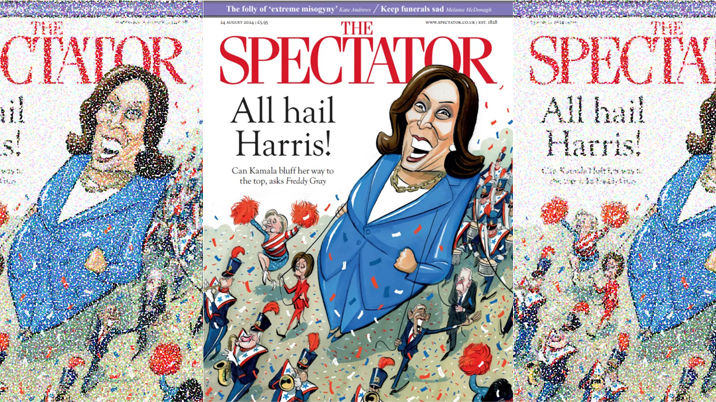
As reported by the BBC, The Spectator went on sale in April after an Abu Dhabi-backed bid to buy it along with the Daily Telegraph and the Sunday Telegraph collapsed. This came after the government intervened in January. Legislation banning foreign states from owning UK newspapers soon followed.
The Telegraph newspapers remain for sale, and Marshall is also in the running to buy those.
After the deal was announced, Spectator chairman Andrew Neil said he would resign with immediate effect.
Neil posted his farewell to staff on X. In it, he wrote: “It is with great sadness that I write to tell you I am resigning as Chairman of The Spectator, with immediate effect. I made it clear many months ago that I would step down when a new owner took over. That time has now come. It has been my immense privilege these past twenty years to have served as your Chairman. During that time we have transformed the oldest magazine in the world, established in the age of the quill pen, into one of the most successful publications of the digital age, growing revenues rapidly across all digital platforms while still maintaining a very healthy print circulation. In recent years The Spectator has never been more profitable, its reach never wider, at home and abroad (helped by our splendid Australian and American editions), and its journalism (under the peerless Fraser Nelson) never better nor more influential than it has been in its almost 200-year history. It is a testament to the efforts of everybody in every department, past and present. You should be proud of what you have achieved. I am certainly proud of you.”
He went on to say: “My greatest regret is that I have not been able to find you a new home guaranteed to nurture the unique chemistry of The Spectator, which makes it so special and successful. I’m sorry about that but the matter was taken out of my hands. We managed to stop the takeover by know-nothing Americans bankrolled by Arab potentates with their own agenda. But, after that, we did not have the power to choose our new owner or even influence who it was to be. No doubt the new proprietor will bring assets to the table, perhaps even bigger budgets. However you can have all the resources in the world but if you don’t understand what really makes The Spectator tick then they will be as naught. Your new bosses need to look and learn from you.”
Media commentator and former national newspaper editor Paul Connew said that it was “no surprise that Andrew Neil had resigned as Spectator chair. Andrew condemned hedge fund ownership on principle though it was also hard to see how he and Marshall could have reconciled after the GB News fallout. The big question now is whether Marshall can be allowed to build a right wing empire by adding the Telegraph titles to his GB News / Spectator stable?”
Connew, who appears regularly as a left of centre voice on GB News, added: “GB News is an authorised broadcast channel and as a believer in free speech and media diversity, I'm happy to appear and argue against the channel's political leaning. The issue here is whether a concentration of ownership problem arises if Sir Paul Marshall were to add the Telegraph titles to his GB News and Spectator stable.”
Sir Paul, who is buying the magazine through his Old Queen Street (OQS) media group, said: “As a long-term Spectator reader, I am delighted it is joining the OQS stable.
"The plan is for OQS to make good previous underinvestment in one of the world’s great titles."
Spectator editor Fraser Nelson wrote on The Spectator’s website: “Had The Spectator been sold to the Emirati government, as was on the cards, we would have faced obvious questions about our operational and editorial independence. That will be protected under Sir Paul, who is buying The Spectator because he admires what we have achieved, believes in the magazine’s values and, most importantly, knows that we can go further with more investment.
“The price we’ve been sold for, £100 million, speaks to that belief in our potential. We were valued at £20 million when we separated from the Daily Telegraph in 2005. Since then, the magazine market has fallen by about two-thirds but our subscriptions have more than doubled. This 5x valuation increase is, to put it mildly, rare in our industry. The auction attracted 22 potential bidders, including some of the greatest and most respected names in British and European publishing. Not bad for a publication with barely three dozen journalists.”
Keep up-to-date with publishing news: sign up here for InPubWeekly, our free weekly e-newsletter.












